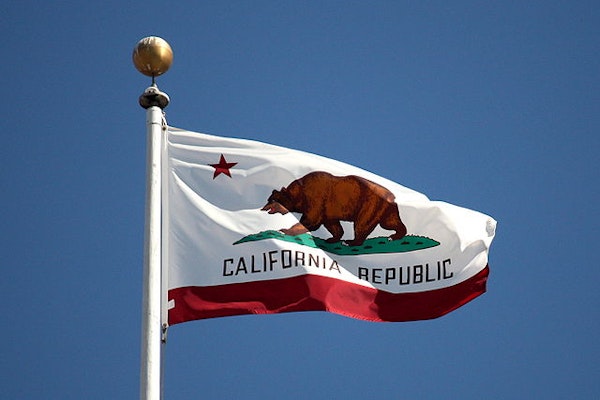
The Long Predicted Gray Tsunami Has Arrived - As Regulators Suffer Most
For years experts have been talking about the "gray tsunami" that threatened the workers’ compensation industry. The crushing wave said to be coming was not one of earth temblors and overwhelming waves, but rather a current of retirement from an aging and long-entrenched workforce
November 24, 2021
Legislation & Regulation
Workers' Compensation

The Evolving Value Of The Claims Sector
While the traditional view of claims is that it sits towards the back of the value chain, that is changing, a speaker said Wednesday during KPMG’s 30th annual insurance conference. The evolving role of claims was one of four macro (or high-level) trends discussed during the Reimagining Operations session at the virtual conference.
November 19, 2021
Auto
Liability
Property
Workers' Compensation

If The Federal Government Legalizes Cannabis, Here Are The Insurance Implications
In his 2015 stand-up special The Comeback Kid, stand-up comedian John Mulaney joked that the government had ‘[become] like cool parents’ when it came to marijuana. It’s a claim many an onlooker would agree with.
November 17, 2021
Excess & Surplus Lines
Legislation & Regulation
Liability
Property
Workers' Compensation

What Happens When Employees Die On The Job?
The death of an employee is certainly a difficult matter for an employer, even when the employee’s death happened away from the workplace and was in no way related to work.
November 16, 2021
Workers' Compensation

What Are Incoming Claims Professionals Looking For?
This past year, millions of claims professionals retired, forcing companies to step up to attract the next generation.
November 5, 2021
Workers' Compensation

Court Of Appeals Rejects Carrier’s Challenge To Settling Around Workers’ Compensation Lien
A valiant effort by a California workers’ compensation carrier to make it more difficult for an employee to argue employer fault and settle around a workers’ compensation carrier’s statutory lien and right of reimbursement fell on deaf ears recently, when the California Court of Appeals rejected the notion that the workers’ compensation carrier has adequate standing to challenge . . .
November 2, 2021
Subrogation
Workers' Compensation
California

Which Workers’ Compensation ‘Benefits’ Can Be Subrogated?
It’s the question every claims professional and trial attorney claims to know but few fully understand.
November 1, 2021
Subrogation
Workers' Compensation

The Upcoming NWCDN Annual (Virtual) Conference
The annual conference put on by the National Workers’ Compensation Defense Network (NWCDN) is scheduled for November 10, 2021.
October 29, 2021
Workers' Compensation

Prepare For A ‘Tsunami’ Of Long-Covid Disability Claims
More than 40 million Americans have been diagnosed with Covid-19, and research suggests that between a quarter to a third of them will develop long-haul Covid, a mysterious illness characterized by persistent symptoms that include severe fatigue, cognitive impairment, and respiratory problems that may leave more than 20% of patients unable to return to work.
October 20, 2021
Life & Health
Workers' Compensation

The Return From Afghanistan And Workers’ Comp Claims
Nothing about the U.S. decision to pull out of Afghanistan has been easy. The impact has been felt around the globe, and the long-term ramifications are still to be determined. For the insurance industry, one of the unexpected areas affected by the withdrawal involves workers’ compensation claims.
October 20, 2021
Workers' Compensation

National Comp 2021 Is Back And In-Person In Las Vegas
The National Workers’ Compensation and Disability Conference (National Comp) presented by Risk & Insurance® will return to Las Vegas in-person after last year’s virtual event.
October 13, 2021
Workers' Compensation
Nevada

Hawaii Workers’ Compensation Subrogation At A Crossroads
We are at the precipice of a potential upheaval in workers’ compensation recovery rights in the Aloha State. The Hawaii Supreme Court is about to decide whether equitable considerations and defenses to subrogation—such as the common law Made Whole Doctrine or Common Fund Doctrine—are to be applied to statutory workers’ compensation liens.
October 5, 2021
Litigation
Subrogation
Workers' Compensation
Hawaii

Prescribing A Recommendation: The Compensability Of Medical Marijuana
Historically, marijuana has been classified as a Schedule I drug under the federal Controlled Substances Act of 1970. Specifically, marijuana with a THC level of 0.3 percent or higher is considered to have ‘no accepted medical use,’ and has a high potential for abuse and physical or psychological dependence.
September 30, 2021
Workers' Compensation

Plain Language, Practice, Or Policy?
Do not make bad case law. We hear this from our mentors, our supervisors, at our continuing education seminars. We appeal bad rulings knowing that, in Georgia and some other jurisdictions, appeals are discretionary for workers’ compensation claims.
September 27, 2021
Workers' Compensation

Crawford Executive Named Woman Of The Year At Global Business Awards
Crawford & Company, the world’s largest publicly listed independent provider of claims management and outsourcing services to carriers, brokers and corporations, has announced that Marie Velez, vice president of finance at Crawford & Company in Latin America, has been named Woman of the Year at the Stevie International Business Awards.
September 24, 2021
Auto
Catastrophe
Excess & Surplus Lines
Liability
Property





